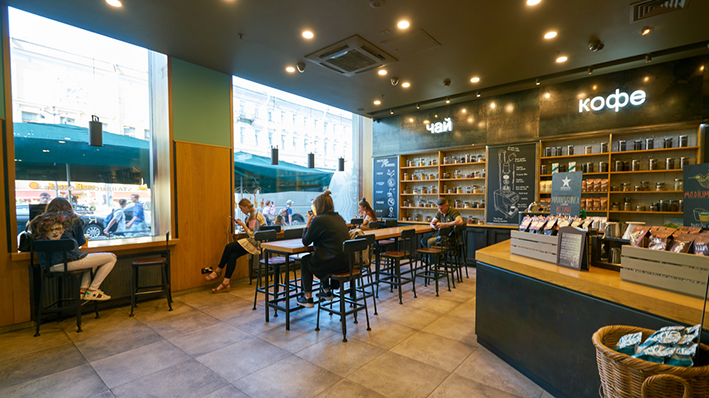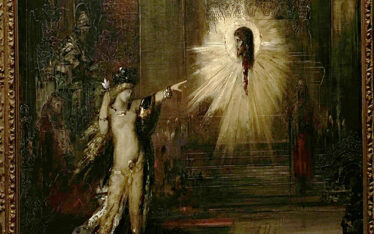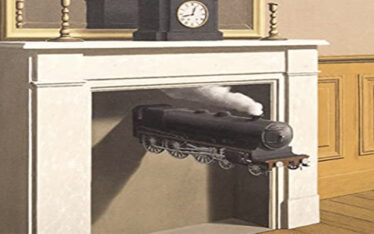
Sorbis/Shutterstock.com
I am no better than the many sleep-deprived college students as they embark on their daily pilgrimage to find caffeine.
GAINING STRUCTURE
The routine of waiting in a line of equally tired addicts to get my six-dollar drink provides a bizarre type of structure to my day.
The most pressing choice at that moment is deciding between my dependable iced latte or if I want to live a little and pay fifty cents to add pumpkin flavoring.
Coffee shops provide a familiar cozy background to the students working on their laptops, or the old friends catching up. Thankfully for my addiction, I do not have to wait in line every time I have a caffeine craving, shops are everywhere!
CORNER ACCESSIBILITY
The accessibility of drive-throughs and the Starbucks on every corner taunt me on drives, while apps now allow me to order ahead while I’m in the elevator.
Most restaurants and food establishments have seen the light of the insanely marked up retail price of coffee. Then again making coffee at home just does not have the same appeal anymore.
Between 2005 and 2010, energy drinks, followed by coffee, were the most profitable fast-food-chain products. This shows why retailers are encouraged to add caffeinated drinks to their menus.
street legal
While there are no legal restrictions on the sale or use of coffee, soft drinks have had laws passed against their availability and consumption, such as the Berkeley soda tax.
Being a tech savvy GenZer, I am particularly influenced by marketing techniques, which merge technology and caffeine purchases. Advertisements on Instagram and customizable apps attest to the increased accessibility of this previously “adult” beverage.
My love of coffee shops may be the result of marketing strategies for increased consumer convenience employed by coffee chains such as Starbucks.
going retail
Realizing I wasn’t the only person who claimed her daily cup of Joe was the only thing keeping me sane, I wondered why coffee was not looked down upon compared to other caffeinated drinks such as sodas.
A possible explanation could be that coffee has far less sugar than artificial sodas, but I think a better explanation would be the emergence of “coffee culture.”
“Coffee culture” is a social atmosphere or series of social behaviors associated with coffee consumption. The increased reliance on caffeine retailers has turned coffee into a cultural and social ritual as a vehicle to bring people together.
FUEL
I doubt slogans such as “America runs on Dunkin” are not far from the truth. Coffee is Corporate America’s gasoline, becoming an essential stop before work and a necessary afternoon pick me up.
Coffee culture also establishes purchasing at coffee shops as a symbol of status. When you go to pick up your drink at the counter you are saying “Yes! I can afford this overpriced luxury!”
In addition, the branded to-go cup you will now be carrying for the next few hours of your day allows you to establish your status to those around you. A coffee cup can also be a social crutch, a conversation starter, a way to say: “I participated in a social ritual that you didn’t.”
social aspects
While many enjoy the energy-boost from caffeine, the social aspect of coffee culture may further encourage a purchase at a coffee shop.
The inviting seating and ambiance create a sense of community between consumers who pick up the habit. I have memories of long hours spent in my favorite coffee shops studying, or if I just needed a break from home or the library.
I believe coffee shops provide a sort of middle-ground, a neutral space away from home or work. The repetitive, familiar layout of coffee chains such as Starbucks provide stability and a welcoming atmosphere.
NEW MENUS
This also promotes brand loyalty, as personally the idea of confronting a new coffee menu disrupts this relaxing part of my routine.
I remember trying to quit caffeine this summer. I spent a week in bed with a mild headache but returning to school I was programmed to think I “needed” coffee to be productive.
Caffeine is the miracle solution for us young adolescents. It’s legal, everywhere, and everyone else is doing it. It’s natural and decreases the risk of certain cancers, right?
the scent of home
Every blue moon when I meet someone that doesn’t rely on caffeine to function, I’ll roll my eyes out of equal parts annoyance and jealousy. The smell of coffee is the smell of home. It shapes our lives and is a part of American culture and consumerism.
The depersonalization of caffeine consumption has begun to take away the humanity of one’s sacred morning ritual.
Yet I wonder at what point our coffee traditions are truly ours if we are programmed to value efficiency over authenticity.
About the Article
A subjective look at the current prevalence of a coffee house culture.



